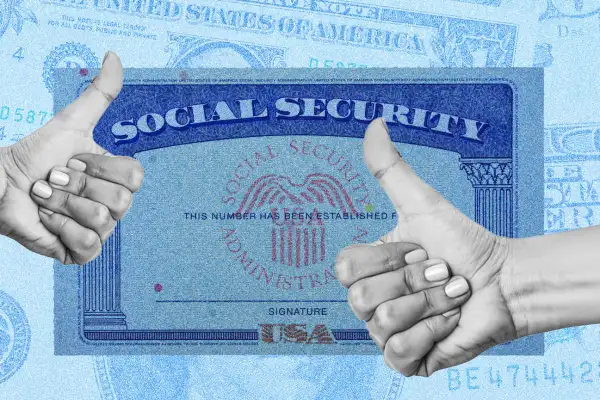More Americans Are Optimistic They’ll Get Social Security Benefits When They Retire

Despite ongoing concerns about Social Security becoming insolvent in the next decade, more Americans are optimistic they'll receive benefits when they retire.
A new poll from Gallup shows that across the age spectrum, faith in the future of Social Security has steadily risen over the last decade or so. About half of U.S. non-retirees expect the Social Security Administration will pay them benefits in retirement — that’s a big jump from 2010, when only a little more than a third said the same.
Gallup surveyed 1,300 non-retirees and 600 retirees in June and July.
Rising optimism about Social Security benefits
The latest Gallup survey numbers indicate that sentiments about Social Security from retired and non-retired Americans are roughly back where they were in the 1980s, 1990s and early aughts. Optimism appears to have bottomed out in 2010 and 2015 and is now generally on the upswing.
Half of American non-retirees said they expect Social Security to provide them benefits when they retire — that’s up from 37% in 2010. Optimism is highest among non-retirees 50 and up: 66% expect to get benefits when they retire. This group was an outlier, however, in that their confidence in receiving Social Security actually decreased recently, falling by 3 percentage points since 2015.
Non-retirees between 30 and 49 are the least hopeful about receiving Social Security income in retirement, with just 37% saying they believe they’ll get benefits. Still, that’s far higher than the 25% who felt confident about their future retirement benefits in 2010.
The youngest non-retired adults, who range from 18 to 29, showed major improvement in their Social Security sentiments, too. About 50% said they think they will receive benefits, up from 34% in 2015.
As for people who are already retired, they are also more confident about Social Security payments. While 43% of current retirees said they believe their benefits will be reduced eventually, most (53%) think they’ll continue to receive their full benefits. That's a big increase from the 37% in 2010 who said they expected to keep getting full benefits.
The future of Social Security
The outlook regarding Social Security benefits may be more positive now among the public, but experts have their reservations. Legislators and economists have sounded warnings about sustainability of Social Security for decades as the trust fund used to bankroll the program barrels toward insolvency.
If no action is taken to fix Social Security’s funding issues, recipients would see a universal 23% reduction to their benefits, according to an analysis from U.S. Budget Watch 2024, a project from the public policy organization Committee for a Responsible Federal Budget.
Most respondents to the Gallup poll (61%) say they would rather see the federal government raise Social security taxes than reduce benefits.
A benefits cut would likely create financial hardship for retired households: Research published earlier this year by the Senior Citizens League shows that even with a historic increase in Social Security payments in 2023, retirees are struggling to keep up with inflation.
More from Money:
Early Retirement Savers Are Burning Out. ‘Coast FIRE’ Might Be the Answer
This Investing Strategy Could Be the Key to a Better Lifestyle in Retirement
Social Security and the 2024 COLA: Everything You Need to Know

